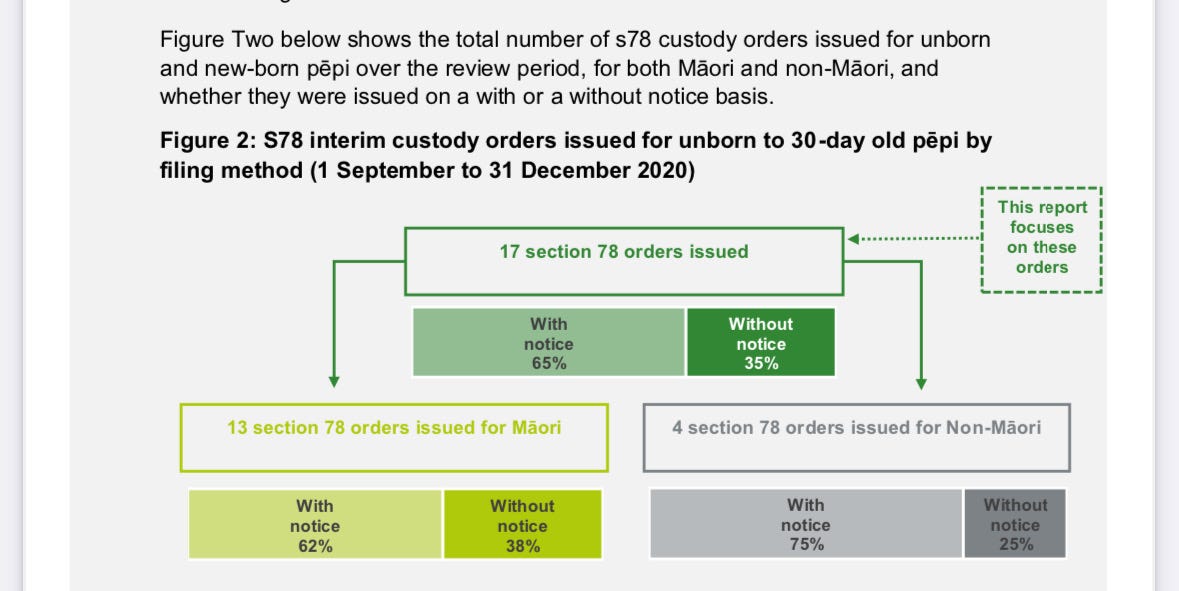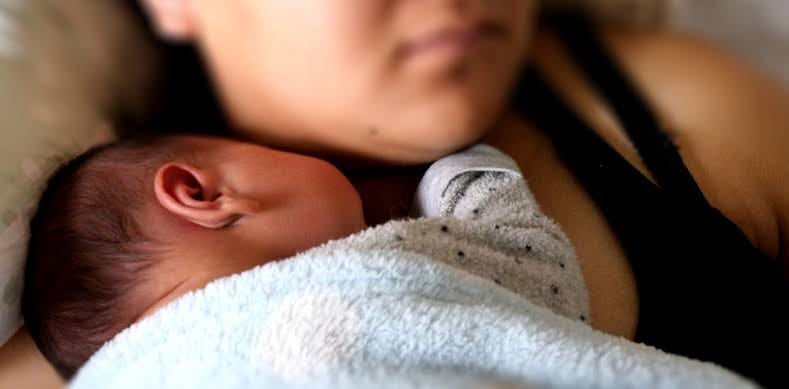How do you continue an organisation widely known for the abuse and torture of children, for wrongfully separating them from their parents, for the neglect and death of actually vulnerable children they failed to support and uplift, and for creating a cycle of trauma that has led to multi-generational state intervention and uplifts and booming gang recruitment?
Why, you rebrand, of course!
To me, Oranga Tamariki will always be CYFs.
That’s what it was when I learned of it as a child, when my cousin and future foster brother was taken into their care. Our experiences (I say ‘our’ — I was eleven and nosey, but mostly sheltered from them) with CYFs as an organisation were mundane but mildly stressful. There was some support offered, but not enough that the placement worked out, and eventually my foster brother’s behaviour became too much for my parents to handle.
Before Oranga Tamariki was Child Youth And Family, it was CYPs — Children and Young Persons. The name change presumably was meant to reflect a greater focus on families and family support.
They probably shouldn’t have bothered.
Before it was CYPS, it was the Child Welfare Division. While under that name in the 70s, it began a reactionary campaign of searching for child sexual abuse that itself would subject countless children to unnecessary invasive vaginal and anal exams that could not and did not provide meaningful evidence of abuse. Social workers exerted power and control over individual families, forcing fathers under suspicion of sexual abuse to seperate from their wives and move out of the family home under threat of children being taken into care. Many of those it did take into care were then abused sexually, physically and mentally by the institutions they were placed in. This campaign would continue the hysteria around child sex abuse and culminate in the wrongful conviction of Peter Ellis for crimes supposedly perpetuated as part of a satanic child sex abuse cult that definitively did not exist.
While the Child Welfare Division was uplifting predominantly Maori children to deliver them to their torture facilities, very real child abuse continued across the motu. My pakeha family was one of such, and the scars of this trauma are still being passed down to future generations today, despite best efforts to heal and break the cycle. My step-grandfather abused at least three children over nearly a decade, harmed many more children and adults irreversibly through his actions, and then shot himself when the situation came to a confrontation. My family would later learn later that it was common knowledge amongst the men of the town that he was ‘like that’. At no point was a social worker or social welfare agency involved.
It seems incredible that the children he was abusing in his household were never taken into care. But after what has come out about how wards of the state were treated back then, and knowing how OT/CYFS operate and how hostile they can be to families and parents, I don’t wonder if my family dodged a bullet by him taking a bullet. And if he hadn’t taken his own life, someone else within the family almost definitely would have. We are fortunate it played out in a way that avoided an outcome where my family were further divided than he’d already made them. It’s scary to think that this dark part of my family’s history that never should have happened may actually have avoided more harm coming to all involved — from the State itself, in a move to protect them.
Today I have another family member involved with OT. She is a vulnerable young person, only a year out of the system herself. She is pregnant and mentally ill, and has the love and support of our family but still faces significant challenges, so I was very relieved to learn that Oranga Tamariki was involved with the unborn baby and would be providing “support” and safety plans, and all those sorts of things that we wanted to a) protect the baby and b) support the mother and help her thrive.
Instead, after a family group conference, Oranga Tamariki filed a court order for compulsory uplift from birth that would actually prevent the mother from accessing the supports she needed to stay well and care for her child. While in court, the lawyer for the baby misrepresented facts and further twisted the situation to try and secure court-ordered guardianship, once it became apparent that OT‘s preferred path wasn’t actually appropriate or necessary and a support order could have been applied for instead. In fact, that order had been applied for simultaneously, even though OT denied this was a possibility at the family group conference.
At this point I’ll note for the stats that the mother is Maori.
OT’s care plan for the child, should it be enacted, will result in guardianship for the child being transferred within the family, so it is both creating unnecessary inter-familial conflicts as well as destroying our positive perception of OT for them to be so underhanded and to act against everyone’s wishes or desires in this way. After we’d been very open with OT regarding our concerns about both mother and baby, it is an absolute gut punch to have this information used against the mother and taken to court for a before-birth uplift order that was neither needed or helpful. And it honestly just makes you feel guilty for having said anything at all, or at least for having been as up front as you were.
So next time, perhaps we won’t be.
Children are the only parties with their own advocates in the child welfare system. Despite this, OT social workers work first and foremost work for OT. Should it come down to it, OT social workers are still obligated and personally incentivised to work to protect the organisation, their co-workers, etc. This is, I suspect, what has happened with Moana, and many other cases; after a social worker has already acted, or when OT’s reputation is being publicly dragged through the mud, the decisions that are made are as much done through the lens of ‘damage control’ and ‘liability’ as they are for the welfare of the child. OT will also tighten ranks to protect their own; for instance, to preserve a harmful race-based reverse-uplift policy that goes against public approval and basic principles of child welfare.
In court, children are given their own lawyer to act “on behalf”, which in theory protects them from OT biases somewhat by giving them independent counsel, though you have to wonder how much that’s the case when they’re lying to the judge about the supports that exist for a mentally-unwell teen mother. But while the child has multiple social workers and automatic legal representation, the interests of the parents, the wider whanau, and any foster parents involved are not protected. They are expected to be able to protect themselves.
Anyone who has found themselves on the wrong end of the power of the state will know how laughable that is.
This issue of advocacy was the problem Moana’s foster family encountered, in what has become New Zealand’s most famous uplift case where children were removed from their stable foster home due to OT social workers feeling the parents did not have the ‘cultural competency’ to raise the children. The protracted legal battle was heard under a controversial judge rumoured to badger and arbitrate over unfairly (particularly female) witnesses and defendants. Because of this, the matter of whether a higher-bench judge could sit in and oversee the case itself became a subject of legal examination and action.
The original judge approved Moana’s uplift. Although his decision would later be overturned by a higher court, this was enough for the children to be taken away from their foster parents, and they now can’t be returned to them without further destabilising their lives and welfare.
It has also resulted in this right-wing, anti-Maori government seeking to remove cultural and Treaty requirements from legislation, despite the fact that the Court of Appeal has ruled that this was an incorrect interpretation and use of the legislation in the first instance.
Social workers are given high workloads, power, and plenty of incentive to use it. They are overworked, under supported, and poorly directed on how to use these powers or how to interpret the law. Public and political pressure means they and their organisation are lambasted when harm comes to children because of their inaction, and a growing awareness of the harm of uplifts and how unhelpful these can be now means they are also lambasted when they veer too cautiously in the other direction. But the organisation overseeing them has always, always failed to meet the needs of the State, of the children in their care, and of the families they should be supporting. This is a structural problem. This is a problem with their overall approach.
And it’s is something that has never, ever been any different. In the 1920s, following alarm over ‘baby farms’, the system began to make greater attempts to keep children within their family. In 2024, a hundred years later, their lawyers are still lying to secure judicial approval for unnecessary uplifts.
Oranga Tamariki as an organisation has never changed. It has only ever been renamed.
National have made this issue about Treaty obligations because it serves their racist agenda and it means they can avoid having to make meaningful change to the system and the culture of OT.
The united right have no interest in protecting children, only in using them for their culture war and as sources of outrage over trans people existing near them. (But who cares their future ability to survive on this planet we’re destroying, right?)
They also have no real empathy for survivors, who are doing the honourable and needed work of advocating for the protection of future generations, so that children in care never again have to suffer like they have suffered. But Luxon and Co. would rather they all just kept quiet and went away.
That’s why Luxon tried to bar the survivors’ most fervent advocate, the investigative journalist who made all this happen, from attending the apology the government gave. That’s why a Chhour breached comity to block the Waitangi Tribunal from enquiring into their s78 repeal and whether it would actually help or harm Maori children. That’s why Willis announced quick compensation for survivors but now refuses to commit to an actually appropriate amount (also they spent that money on tax breaks). That’s why this government resist advancing meaningful change over their own race war.
It seems very difficult for politicians, left or right, to find a way to make the necessary changes to a broken, abusive system when three of the six parties want to pretend the actual problem is that our legislation is just too demanding regarding the cultural needs of Maori wards — an interpretation the judiciary has already overruled and the Tribunal has told them is incorrect.
With this as the status quo, I doubt the situation will improve for our kids in care any time soon.







😥Sadly you are spot on - first everyone with power to affect change has to agree on the problem(s)/solution(s) and involve all affected groups in achieving that, THEN they need to fund adequate training & resources to implement it independent of election cycles & political whims - if ANY cross-party policy is paramount then surely it is the ongoing safety & welfare of children ⁉️ (oh look - there's a pig flying past my window 😱)
Ive seen that pig too. I've also witnessed FGC firsthand and the power wielded inappropriately. The lack of the right resources. The patronising of the subjects and supports. The keenness of the system to protect itself first and foremost. Thanks for this.